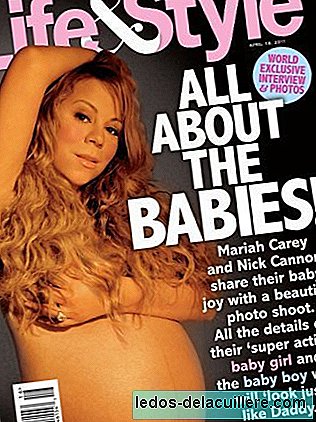
On the occasion of the World Breastfeeding Week, the Breastfeeding Committee of the Spanish Association of Pediatrics wanted to present some figures on the time babies are breastfed after birth.
After birth, most try breastfeeding. Around 80 percent of mothers decide to breastfeed their babies after giving birth, at six weeks the figure decreases to 68 percent and at three months, to 52 percent. Almost half of women leave breastfeeding three months after the baby and only 36 percent continue to breastfeed for the first six months, the minimum recommended time from various agencies.
Among the benefits of breastfeeding for the breastfed baby we find the prevention of numerous diseases and the creation of a very special bond with his mother, while she also obtains great advantages.
Breastfeeding the baby during the first six months, and ideally together with the complementary feeding during the first 2 years, helps to protect the child against colds, bronchiolitis, pneumonia, diarrhea, otitis, meningitis, urine infections, necrotizing enterocolitis or death syndrome Sudden infant.
It also protects you from future diseases in adulthood such as asthma, allergy, obesity, immune diseases such as diabetes, Crohn's disease or ulcerative colitis and arteriosclerosis or myocardial infarction and promotes intellectual development.
On the other hand, for the mother, it helps with weight loss and prevent anemia after childbirth, as well as reducing the chances of suffering from hypertension and post-birth depression. It is also associated with a lower risk of osteoporosis, breast and ovarian cancer.
There are cases, less than those believed, in which breastfeeding is truly impossible. The most common reason why mothers stop breastfeeding their babies is because of "lack of milk" or "poor quality of milk." That their milk does not feed them is the main argument of women who abandon breastfeeding.
In most cases it is due to errors in the breastfeeding technique such as a late onset (that's why it is recommended to put the baby to the breast as soon as it is born), give supplements to the newborn in the hospital compromising the onset of breastfeeding, bad position or bad grip on the chest, which can cause the child not to take enough or cause discomfort in the mother that lead to early weaning.
There is no doubt that exclusive breastfeeding up to six months is the best option for the baby from the nutritional and emotional point of view. It would be desirable if there was more support for mothers who want to breastfeed their babies for a longer period, starting with a six month maternity leave.












